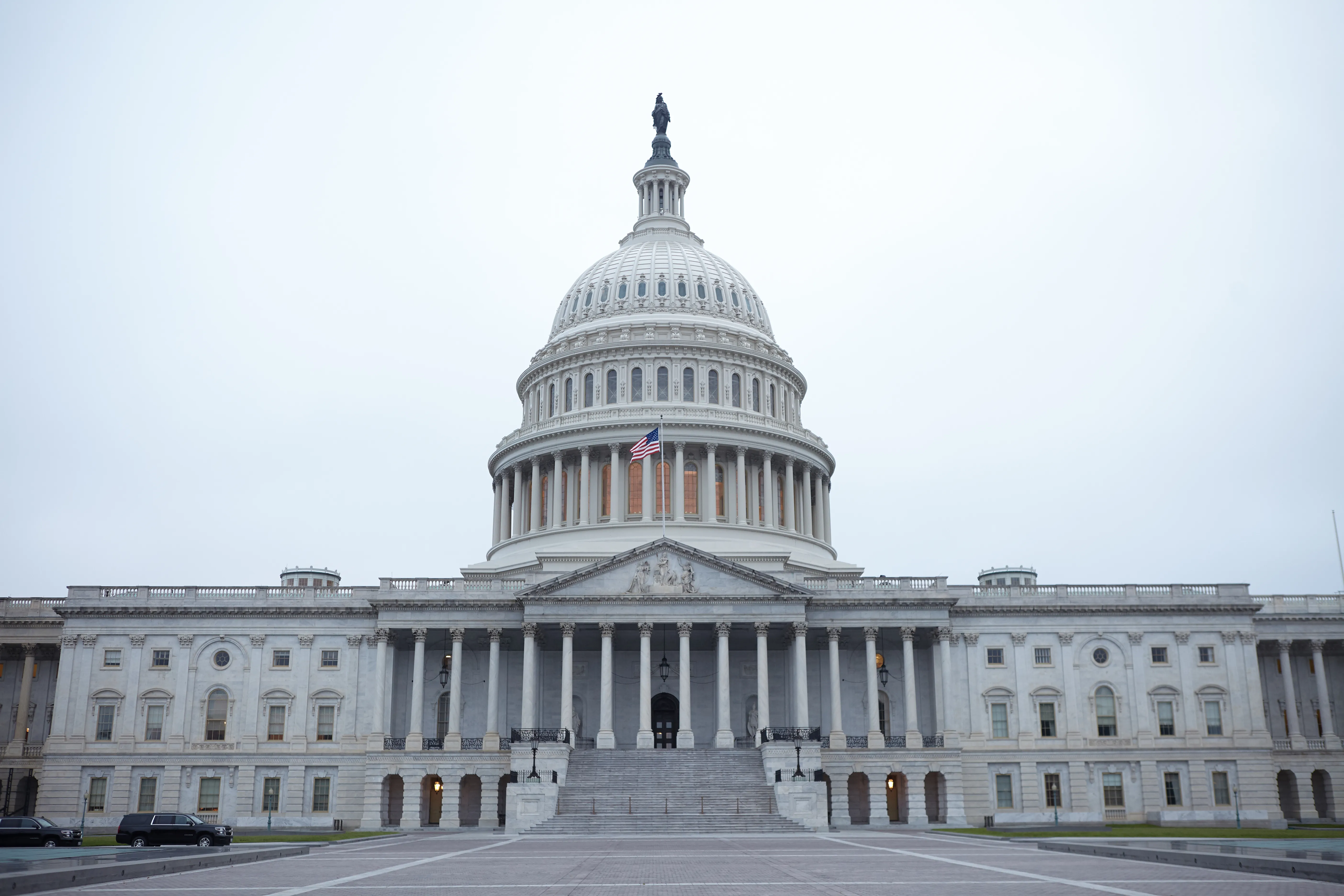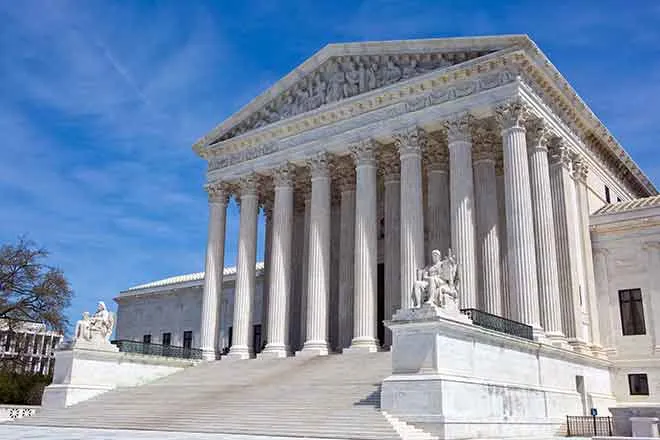
North Dakota Supreme Court denies state’s request to reinstate abortion ban
The North Dakota Supreme Court Friday declined to reinstate a near-total abortion ban as the state’s appeal proceeds.
In a Friday majority opinion by Justice Daniel Crothers, the court appeared skeptical of several of the state’s core arguments defending the law, hinting that it may side with plaintiffs in its final ruling. North Dakota sets a high bar for declaring laws unconstitutional, requiring the vote of four of five Supreme Court justices.
Justices Lisa Fair McEvers and Daniel Narum, sitting in for Justice Douglas Bahr, joined Crothers in the majority opinion. Chief Justice Jon Jensen and Justice Jerod Tufte dissented.

The ban, signed into law by Governor Doug Burgum in April 2023, made abortion illegal in all cases except rape or incest if the mother has been pregnant for less than six weeks, or when the pregnancy poses a serious physical health threat. The serious health risk threat does not include psychological conditions.
A group of reproductive health care doctors and an abortion clinic challenged the law in 2023, arguing it infringes on individual rights and puts health care providers in danger by not making it clear when an abortion may be performed for health reasons.
“This ruling helps restore access to reproductive health care, but the fight is not over. We will continue to fight to ensure that people in North Dakota can access safe and legal abortion care when they need it most,” Christina Sambor, one of the attorneys representing the plaintiffs, said in a statement.
The decision comes after South Central Judicial District Court Judge Bruce Romanick struck down the ban in September 2024, declaring it unconstitutionally vague and an infringement on medical freedom.
Romanick further found that “pregnant women in North Dakota have a fundamental right to choose abortion before viability exists.” His decision asserts broader abortion protections than the North Dakota Supreme Court’s 2023 abortion ruling, which established that women in North Dakota have a right to seek an abortion for health reasons.
The high court appeared to agree with Romanick and the plaintiffs on several points, including his assertion that the law is too vague to enforce.

Laws that restrict constitutional rights must meet a “high degree” of specificity, but the abortion law does not appear to meet this standard, the justices found.
“Along with its general language, the law uses complex terms like ‘serious health risk’ and ‘substantial physical impairment,’ yet the law provides no definition or guidance as to what these terms are supposed to mean,” the opinion states.
This could have dire consequences, the justices continued. If the abortion law cannot be easily interpreted, it can force patients to forgo life-saving care and put doctors at risk for criminal persecution, they wrote.
The majority opinion also called the ban’s health exemptions arbitrary and inconsistent.
The three justices questioned why the law’s exemption for serious health risks specifically excludes mental health conditions, for example.
“The law is unlikely to survive strict scrutiny review because it criminalizes abortions necessary to prevent a woman from harming or killing herself,” the opinion states.
The court further noted that the law likely will not be enforced until a final decision in the case is reached, so keeping Romanick’s ruling would not pose any harm to the general public. State’s attorneys in Burleigh, Cass, Grand Forks and Stark counties agreed not to enforce the law until the case is closed, according to the opinion.
The Red River Women’s Health Clinic, at one time the state’s sole abortion clinic, moved across state lines to Moorhead, Minnesota, in 2023.
In his dissent, Tufte cautioned that the court “has little precedent to guide” its decision on the matter.
He said letting Romanick’s decision stand “has the effect of suspending enforcement of the statute until an uncertain future date when this Court renders final judgment on the merits,” he wrote. “It is not clear whether a simple majority of three members of this Court has that power.”
He noted that when the North Dakota Supreme Court made its 2023 decision on the state’s previous abortion law, it was at an early stage of the lawsuit. The court never made an “ultimate decision” as to the constitutionality of the law, Tufte wrote.
Tufte also agreed with the state that Romanick’s opinion contained significant legal errors that could undermine the district court ruling, and that the authors of the North Dakota Constitution did not have any intention of it being used to establish abortion rights.
Jensen wrote that the high threshold for declaring laws unconstitutional in North Dakota, coupled with what he characterized as an unusual legal analysis by Romanick, gives him pause about leaving the lower court’s decision in place.
The state’s appeal of the district court’s ruling has yet to be decided. The state earlier this month asked for oral arguments, which have not been scheduled.
North Dakota Monitor is part of States Newsroom, a nonprofit news network supported by grants and a coalition of donors as a 501c(3) public charity. North Dakota Monitor maintains editorial independence. Contact Editor Amy Dalrymple for questions: info@northdakotamonitor.com.
















